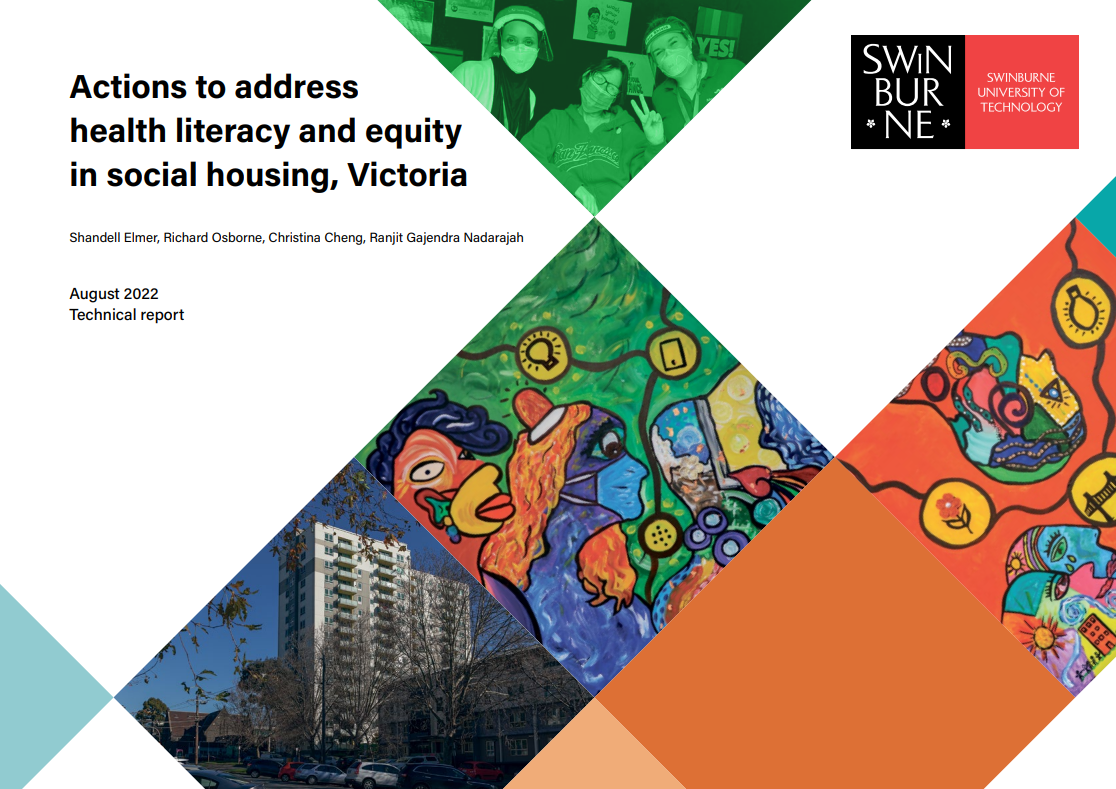Led by Swinburne, the publication ‘Actions to address health literacy and equity in social housing, Victoria’ captures the research, findings, analysis and recommendations that can be applied more broadly to improve health literacy and equity for social housing residents, along with improvements to service provision, communication and engagement.
The study, led by Dr Shandell Elmer of the Centre for Global Health and Equity, sought to understand residents’ health literacy, including what they knew about COVID-19 and keeping safe.
More than 800 residents shared their challenges and fears along with what gave them strength during the pandemic.
The study also worked with frontline community health workers to learn what they did to understand residents’ requirements and assist them.
A key finding of the research is that local community health services are critical for successful communication and engagement in these settings.
The report makes several recommendations for actions on how governments and health services need to respond, and what can be done to understand and support people living in public housing settings.
These actions include improving the health literacy responsiveness of the system, reducing digital exclusion, ensuring proactive and flexible interactions and improving the connections between the different parts of government and services sectors.
Bendigo Community Health Services Chief Executive Officer, Gerard José, says social housing residents have diverse needs that require flexibility in how services work with them.
“During the Covid-19 pandemic we have learnt much about how we engage with the many diverse communities across our region,” he said.
“During the past two years, BCHS staff have asked community what they want, what works for them, and changed our approaches and ways of communicating to accommodate those needs.
“By being agile and working directly with local communities, we have seen a gradual build in trust as our teams have become familiar faces in the neighbourhood either going door-to-door or holding events at neighbourhood venues.”
Mr José says there is a high reliance on digital and social media by government departments to impart important messages, but some communities supported by HRAR struggle with these forms of communication.
“These community members appreciate someone who will take time to explain things to them and not rush them through or redirect them to websites, Facebook, etc. They appreciate friendly, genuine supports that steer them through often complex processes and health pathways,” he said.
“The positive outcomes and experiences we have observed extend beyond a response to COVID and tell us much more about how we truly engage people in services and in building up an understanding of their care needs.”
Our impact:
- Many people have reported they ‘never go into town’ and because they had seen us consistently in their area, they ‘finally came over’ to be vaccinated.
- One woman attended for vaccinations for herself and her children while her partner wasn’t home, as he didn’t believe in the vaccination, but she knew not having the children vaccinated would prevent the kids getting day care. She was too scared to tell him.
- A single man living in a rooming house with no family was so scared he thought he was going to die. He didn’t have anyone to talk to at the time, so he looked forward to the twice daily phone calls.
- Providing supports to homeless families housed in motels while COVID positive showed how precarious their existence was and how they were living from day to day







